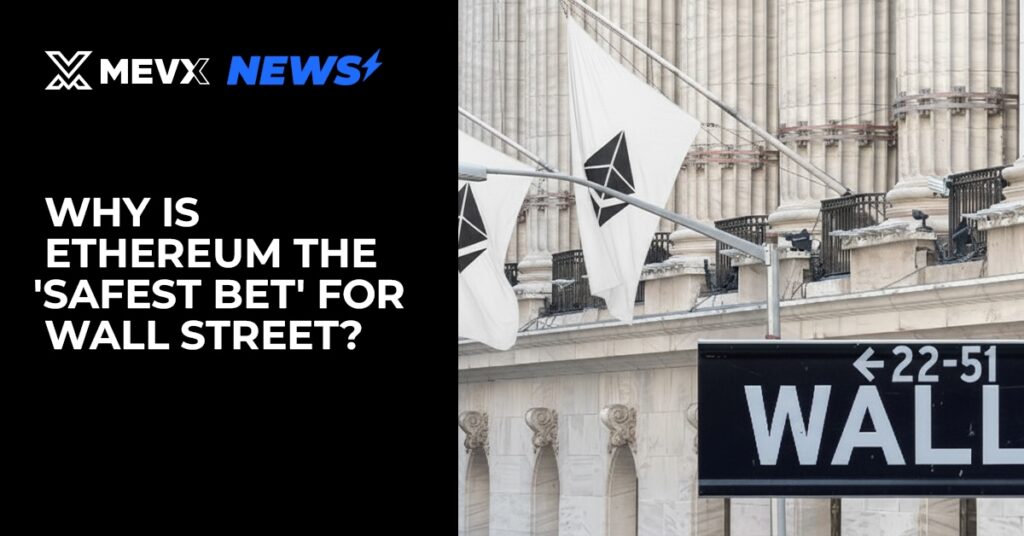Wall Street is eyeing blockchain technology to overhaul its outdated systems. A recent Forbes analysis, published on September 25, 2025, spotlights Ethereum as the “safest bet” for channeling trillions of dollars into decentralized networks. Titled “The Race To Rewire Wall Street: Is Ethereum The Safest Bet?“, the article delves into how Ethereum’s robust security and infrastructure position it ahead in this high-stakes transformation.

The piece highlights Wall Street’s inefficiencies: slow settlements for bonds and mortgages, high intermediary costs, and locked-up capital that heightens risks. Blockchain promises instant transactions and reduced friction, but choosing the right platform is crucial to avoid obsolescence or vulnerabilities.
Ethereum, often criticized for speed and fees, shines in reliability, drawing insights from Danny Ryan, a former Ethereum Foundation expert and co-founder of Etherealize, a firm backed by Vitalik Buterin and $40 million in funding.

What makes Ethereum the “safest bet” for Wall Street?
The analysis emphasizes its crypto-economic safeguards and neutral design, making it ideal for institutional adoption.
- Unmatched Security
- With over 1 million validators and nearly $100 billion staked, attacking Ethereum is prohibitively expensive.
- It secures 70% of stablecoin value and 85% of tokenized real-world assets, per Etherealize research.
- Privacy Innovations: Zero-knowledge proofs (ZKPs) enable selective data disclosure, allowing compliance without exposing full transaction details, solving the public ledger dilemma.
- Modular Scalability
- Layer 2 (L2) solutions enable institutions to customize their networks while retaining Ethereum’s core security.
- For instance, Coinbase’s Base L2 generated nearly $100 million in sequencer revenue in its first year.
- Proven Track Record: Operational since 2015 with zero downtime, Ethereum offers “credible neutrality”; no single entity controls it, fostering global trust.
Compared to rivals like Solana (faster but more centralized) or Canton (reliant on “honesty assumptions”), Ethereum prioritizes mathematical security over shortcuts. Ryan, in a Q&A, warns against “smoke-and-mirrors” alternatives, stressing that true privacy and reliability come from math, not assumptions.
The Broader Implications for Finance
This “rewire” race could unlock trillions in efficiency, but Ethereum’s lead stems from its ability to scale beyond 100,000 transactions per second through upcoming upgrades, such as data availability sampling.
As institutions like Stripe and Circle build proprietary chains, Ethereum’s open ecosystem avoids fragmentation, ensuring liquidity and interoperability.
While no blockchain is perfect, the Forbes piece argues Ethereum’s battle-tested foundation makes it the prudent choice for Wall Street‘s future.
For more deep dives into blockchain trends, follow our MevX blog and stay ahead of the curve!
Share on Social Media:
